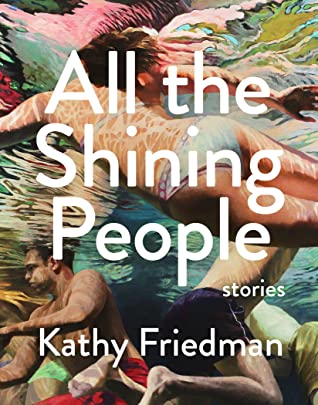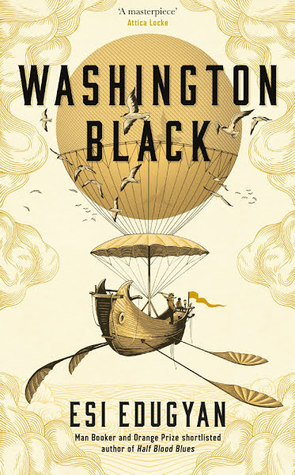Thank you Guernica Editions for sending The House on Selkirk Avenue. This book was pitched as a wonderful way to share in the celebration of Canada’s 150th, but also in Montreal’s 375th anniversary, as it is set in Montreal during the 1970 October Crisis.
From the publisher: Kate was an apolitical, privileged, anglophone youth in 1970 who unexpectedly became embroiled in the October Crisis when her boyfriend – a poor, francophone student – vanishes. Thirty years later, Kate returns to Montreal and struggles to reconcile her current life with the dreams and future that disappeared the day that Guillaume did. Kate begins to retrace her steps in Montreal during that fateful autumn, unsure exactly what she is searching for, and whether it would be best if she didn’t find it at all. Deftly weaving historical events and figures with fiction, this novel is a compelling and mysterious read.
The October Crisis angle was a very appealing one for me and I looked forward to reading The House on Selkirk Avenue. And the brief sections chronicling the tension and anxiety in Montreal, the time when Trudeau invoked the War Measures Act, the actions of the FLQ during this period in Montreal’s history, were very good, and very interesting to read.
I enjoyed Karafilly’s skilled and careful writing, her descriptions and details were wonderful, such as: “Soon even her dream’s became bloated with Guillaume’s rage, her fitful sleep splashed with blaring headlines and grainy black-and-white images of hooded faces, and vast caches of obscure, deadly weapons.”
Her details shared in a letter by Guillaume to Kate, about Guillaume’s terrifying experience when he’s arrested and interrogated by the police made for great reading. Guillaume’s letter contains the point-of-view of what it was to be taken from your home and interrogated for days on end concerning the smallest suspicions of your involvement with the FLQ.
“All they said was that the new ‘special law’ made explanations unnecessary. Can you believe it? Would you believe it if it happened to you, or your family?…Personally, I was more than willing to go to the police station and let them question me, let them find out what a stupid mistake they’d made. But then they handcuffed me! They took my two wrists, Katherine, and handcuffed me, then shoved me into one of their police cruisers like any bank robber or murderer!…and they ordered me. along with I don’t know how many others, to strip down so they could check for lice, for small objects hidden between my buttocks?…They had hired barbers to chop off our hair and beards.”
“After I got out, I learnt that they had in fact arrested my sister, forcing her to leave her small children behind, can you imagine? …They took Chantal downstairs and left a policeman to watch over an infant and a terrified three-year-old child. In Canada!”
The grim account of what Guillaume endured continues for 8-pages until he ends it saying that now that he is released, he just wants to go off alone and take time to be by himself. He never wants to see Kate (Katherine as he calls her) again and is sorry he didn’t listen to his family when he became involved with an Anglophone. And with that letter, Kate never hears or sees him ever again.
Kate then leaves Montreal, travels to Europe, returns to marry and moved to Edmonton. She doesn’t return to Montreal until 30 years later when she settles her daughter in at McGill. Here, we begin to hear of the tremulous nature of Kate’s marriage and when her daughter is in class, Kate wanders Montreal, returning with trepidation to Selkirk Avenue – the place where Guillaume lived, the place of their brief love. Living there now is an elderly actress whom Kate befriends and shares her story of Guillaume.
I kept changing my feelings about the connection I felt with Kate. In the beginning I felt there was a strong connection, especially her stories of returning to Montreal and meeting up with former friends. She quickly realizes they share nothing in common anymore and the shallowness of one former friend irks her. However, as the story progressed and we listened to her pining over, what to me, felt more as though it were only a fleeting relationship with her francophone boyfriend and therefore it didn’t ring true for me. I don’t know, yes, he was held and interrogated over a number of days, and she only knew of what happened because of this letter he sent her and following this, he never wanted to see Kate again.
Her holding on to this for years and years, and having it infect her every thought and invading her marriage didn’t have the depth to it to pass believability for me. She held on to his dismissal for years and when she returns to Montreal it seems to be made out to something larger than it actually was. When she does run into him again I felt this to be very anti-climatic. The depth of the relationship between Kate and Guillaume wasn’t strong enough for me to buy into Kate’s inability let it go and be present in her adult life. I felt this component of the story to be described as a shallow relationship to begin with. I don’t know -I’m sure I’m babbling. So to sum up, this was a good read, with the political parts surrounding the October Crisis the strongest and more interesting aspects to this story.





2 Comments
It seems I’ve got a couple of books set in that time period on my TBR, but I think the only reading I’ve actually done (that I can think of) is non-fiction. It’s certainly a vibrant and exciting time period, and I can see where the political tension creates the opportunity for plenty of “what-if” romantic storylines. I enjoyed reading your response to this one, although I’m not sure it’s a match for me.
I think that’s it BIP! That romantic storyline between anglophone and francophone – could have been more in depth I think, it wasn’t the strongest aspect of the book. So it was okay, but I don’t know – just missing that something-something? The other one I’ve read that’s situated in this time period, and one I enjoyed more, was My October by Claire Holden Rothman. I read that a few years ago and it’s another one that seems to be a hit with some and a miss for others. :-)